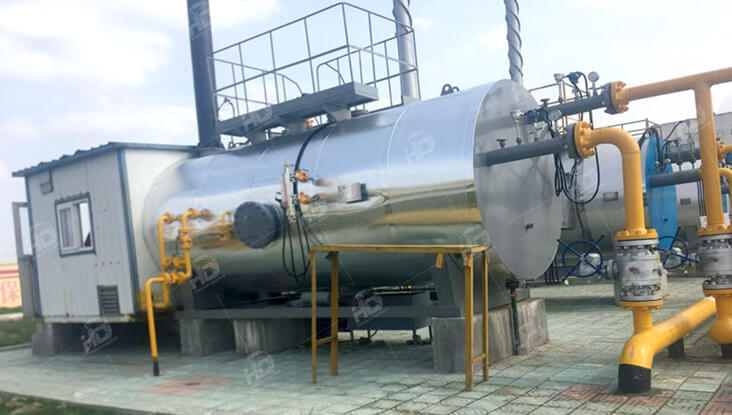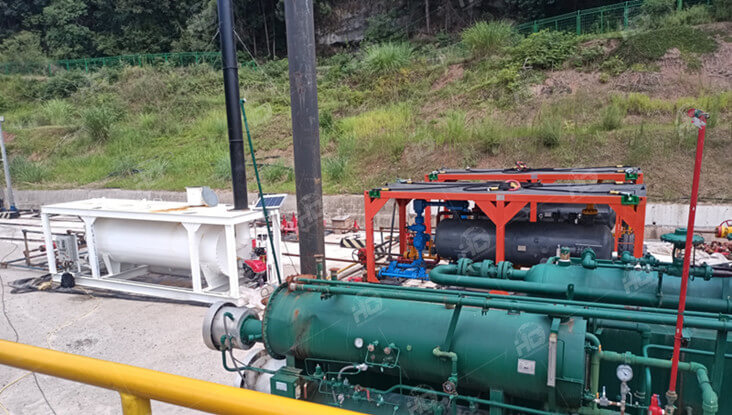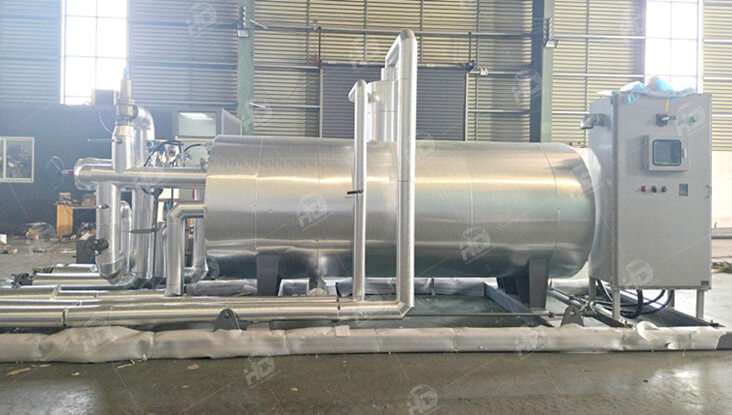In the oil and gas industry, selecting the right heating method is critical for maintaining operational efficiency and ensuring equipment longevity. When dealing with high H₂S (hydrogen sulfide) environments, the choice between a water bath heater and an electric heater becomes even more significant. Each heating method has its strengths and limitations, and understanding their differences can help operators make informed decisions for their specific applications.
Water Bath Heater
A water bath heater utilizes indirect heating by immersing a fire tube in a water-glycol bath. The heat is transferred from the fire tube to the bath, which in turn heats the process fluid flowing through a coil. This indirect heating method provides uniform heat distribution and helps prevent localized overheating.
Electric Heater
An electric heater, on the other hand, directly heats the process fluid using electrical resistance elements. These elements are in direct contact with the fluid or encased within a protective sheath, transferring heat through conduction. Electric heaters offer precise temperature control and can be highly efficient in environments with stable power supply.
Performance in High H₂S Environments
Hydrogen sulfide is a highly corrosive and hazardous gas, requiring careful consideration of equipment material selection and heating method.
Corrosion Resistance
Water Bath Heater: The indirect heating design minimizes direct exposure of metal components to the process fluid, reducing the risk of corrosion. Additionally, the bath solution can be treated to prevent scale and corrosion buildup.
Electric Heater: Electric heating elements are in direct contact with the process fluid, making them more susceptible to corrosion and fouling in high H₂S conditions. Special coatings and materials can mitigate this risk, but long-term exposure can still lead to degradation.
Safety Considerations
Water Bath Heater: The indirect heating process provides a natural buffer, reducing the risk of overheating and potential thermal degradation of the process fluid. This is particularly important in handling sour gas or crude oil with high H₂S content.
Electric Heater: Direct heating poses a higher risk of localized overheating, which can accelerate material degradation and potentially lead to hazardous conditions if not properly managed.
Maintenance & Reliability
Water Bath Heater: Requires periodic maintenance, such as checking the bath fluid level, treating the water-glycol mixture, and inspecting the burner system. However, the risk of component failure due to corrosion is generally lower.
Electric Heater: While electric heaters require less frequent maintenance in clean environments, they are prone to scaling, fouling, and element burnout when exposed to harsh conditions. In high H₂S applications, maintenance intervals may be shorter due to accelerated wear.
Operational Considerations
Water Bath Heater: Typically fired by natural gas, making it a viable option for remote locations where electrical power is limited or expensive.
Electric Heater: Highly efficient when grid power is readily available, but operational costs can be higher in areas with expensive electricity.
Installation & Footprint
Water Bath Heater: Requires a larger footprint due to the bath volume and burner assembly.
Electric Heater: More compact and easier to install in space-constrained environments.
Which One Should You Choose?
If your application involves high H₂S content, a water bath heater is generally the preferred option due to its corrosion resistance, safety benefits, and ability to provide uniform heating. It is particularly suited for natural gas processing, crude oil heating, and other applications where indirect heating is advantageous.
However, if space constraints, precise temperature control, or a stable electrical power source are key factors, an electric heater may be suitable, provided that corrosion-resistant materials and coatings are used to mitigate long-term degradation.
HC’s Expertise in Heating Solutions
At HC, we specialize in designing and manufacturing customized water bath heaters and electric heating solutions tailored to the demanding conditions of oil and gas production. Our expertise ensures that operators receive reliable, efficient, and safe heating solutions, even in the most challenging environments. If you need guidance in selecting the best heater for your specific application, our team is here to help.
-
2025 / 12 / 29
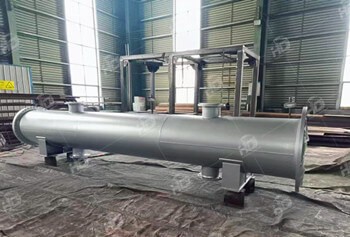 Customized Shell and Tube Heat Exchanger for Syria Project
Customized Shell and Tube Heat Exchanger for Syria Project -
2025 / 11 / 01
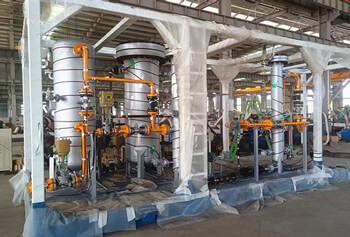 HC Successfully Delivers Gas-Liquid-Sand Separator for Xinjiang Oilfield Project
HC Successfully Delivers Gas-Liquid-Sand Separator for Xinjiang Oilfield Project -
2025 / 08 / 20
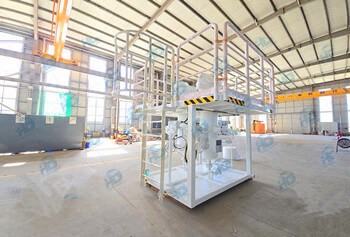 HC Successfully Delivered Filter Coalescer Skid to Malaysia
HC Successfully Delivered Filter Coalescer Skid to Malaysia
- +86 158 6190 3617








